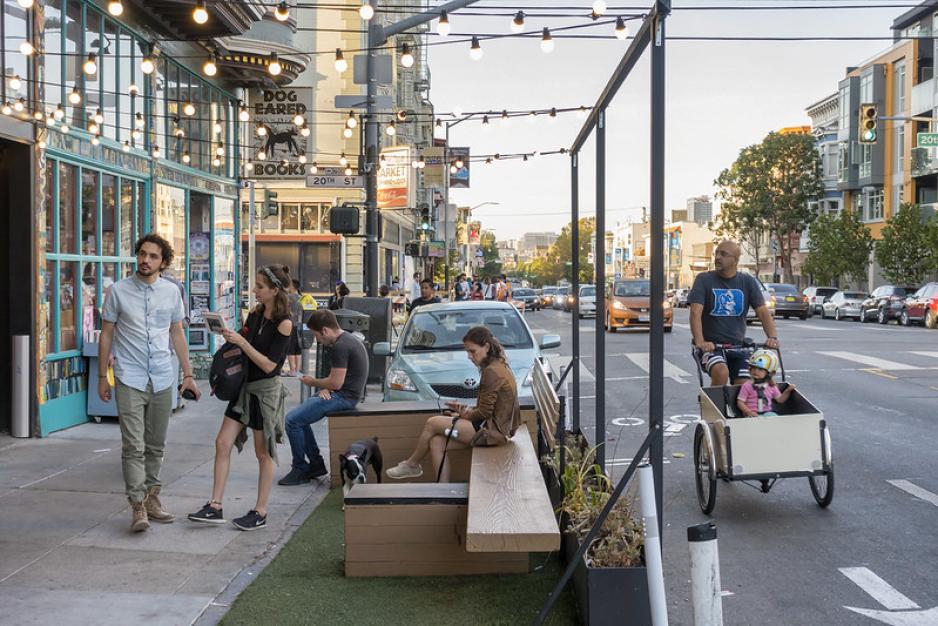The efficient use of parking facilities can provide numerous benefits related to site design, trip generation, development cost, and building design and function. When implemented effectively, parking management addresses a wide range of transportation problems and can help public and private projects achieve a variety of transportation, land use, economic, and environmental objectives. Parking management can help to reduce the number of vehicle parking spaces that need to be built, encourage a shift in vehicle traffic volume to healthier modes, and reduce the environmental and climate impact of new development.
Parking management strategies can take several forms, from operations to policy to incentives. Different strategies can be adopted individually or coordinated and implemented together to maximize the use of existing and planned parking resources.
Shared Vehicle Parking
Encourage shared vehicle parking among mixed-uses on a single site or adjacent sites to utilize parking resources more efficiently.
Data, Technology, and Pricing to Manage Parking
Accurately assess and evaluate parking demand by using data, technology, and pricing tools. Improve user information, convenience, and safety, and control revenue through use of new technologies, such as real-time data collection.
Vehicle Parking Duration Limits
Place duration limits on the maximum length of parking time allowed by favoring higher priority trips that tend to park for shorter durations compared to long-term low priority trips.
Permit Parking
Enact permit parking to limit the number of users who may park in particular locations, typically in residential areas.
Curb Management
Manage the value of curb space through the application of structural, policy, and technological curb management solutions.
Area Parking Management Plans
Develop Parking Management Plans to set guidelines on how to regulate public and private spaces to ensure efficient parking in a defined area.
Pay-Per-Use Automobile Services
Encourage pay-per-use automobile services, such as taxis or ride hailing services that do not require parking.
Reduce Parking Demand
Promote active modes to encourage modal shift from driving to more sustainable modes of transportation.
Case Studies
- Redwood City, California, USA - Downtown Parking Program
- King County Metro Transit, Washington, USA - Parking Supply
- Santa Monica, California, USA - Parking Supply Technology
